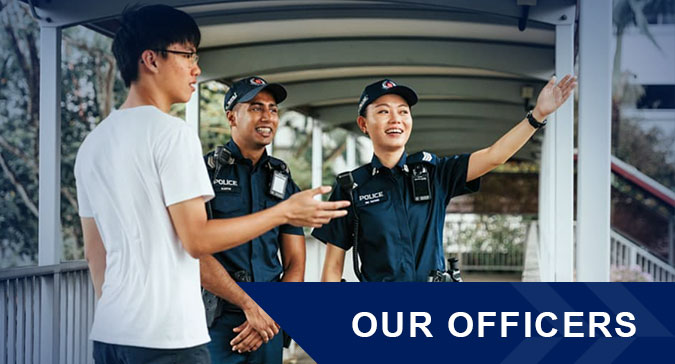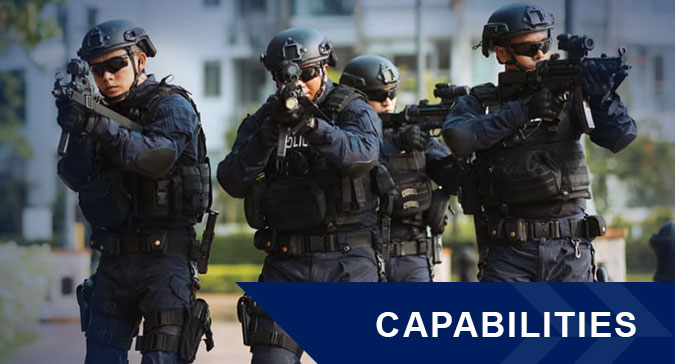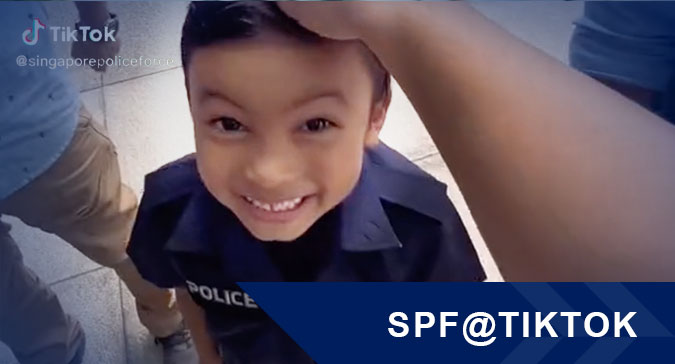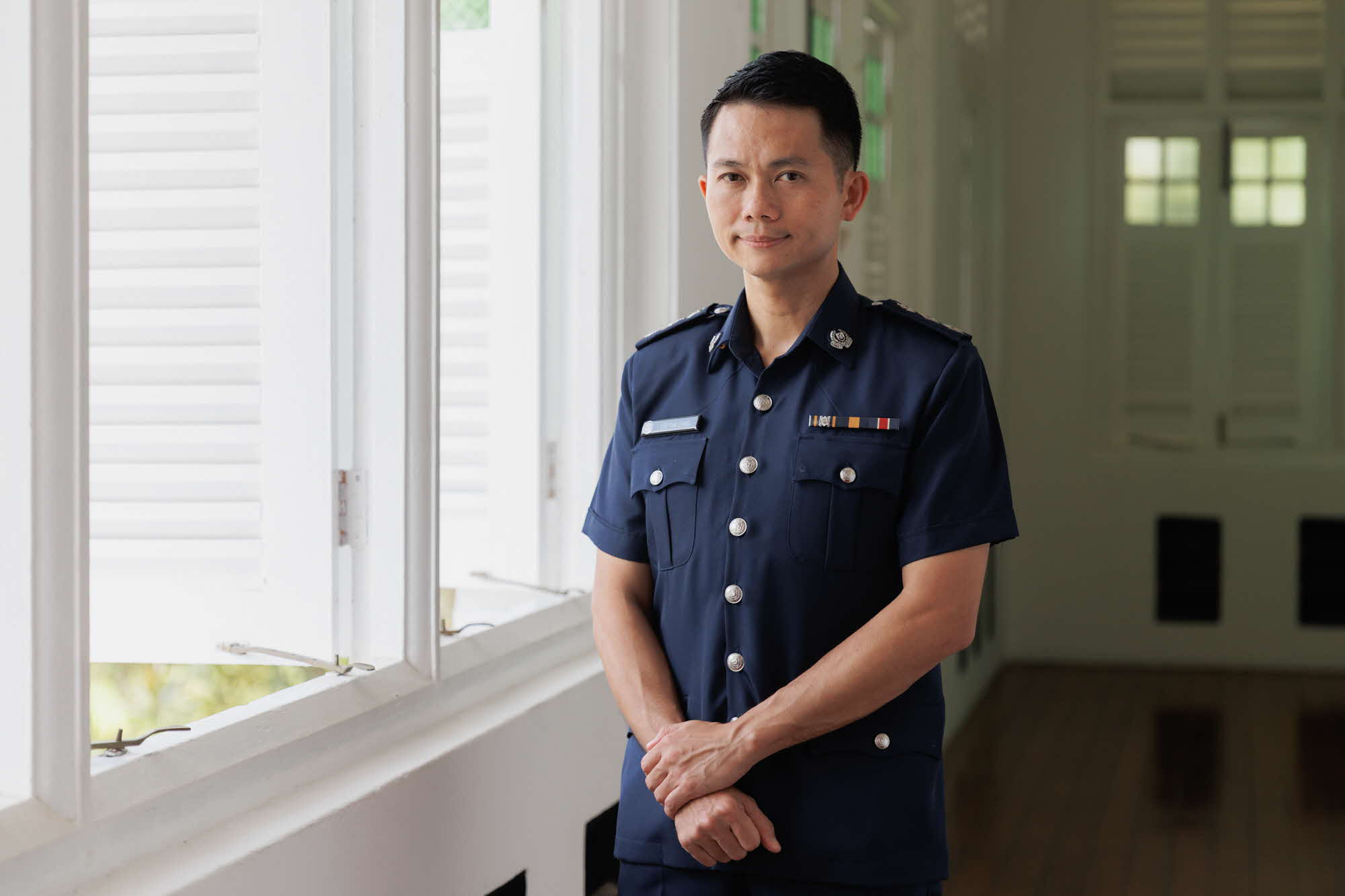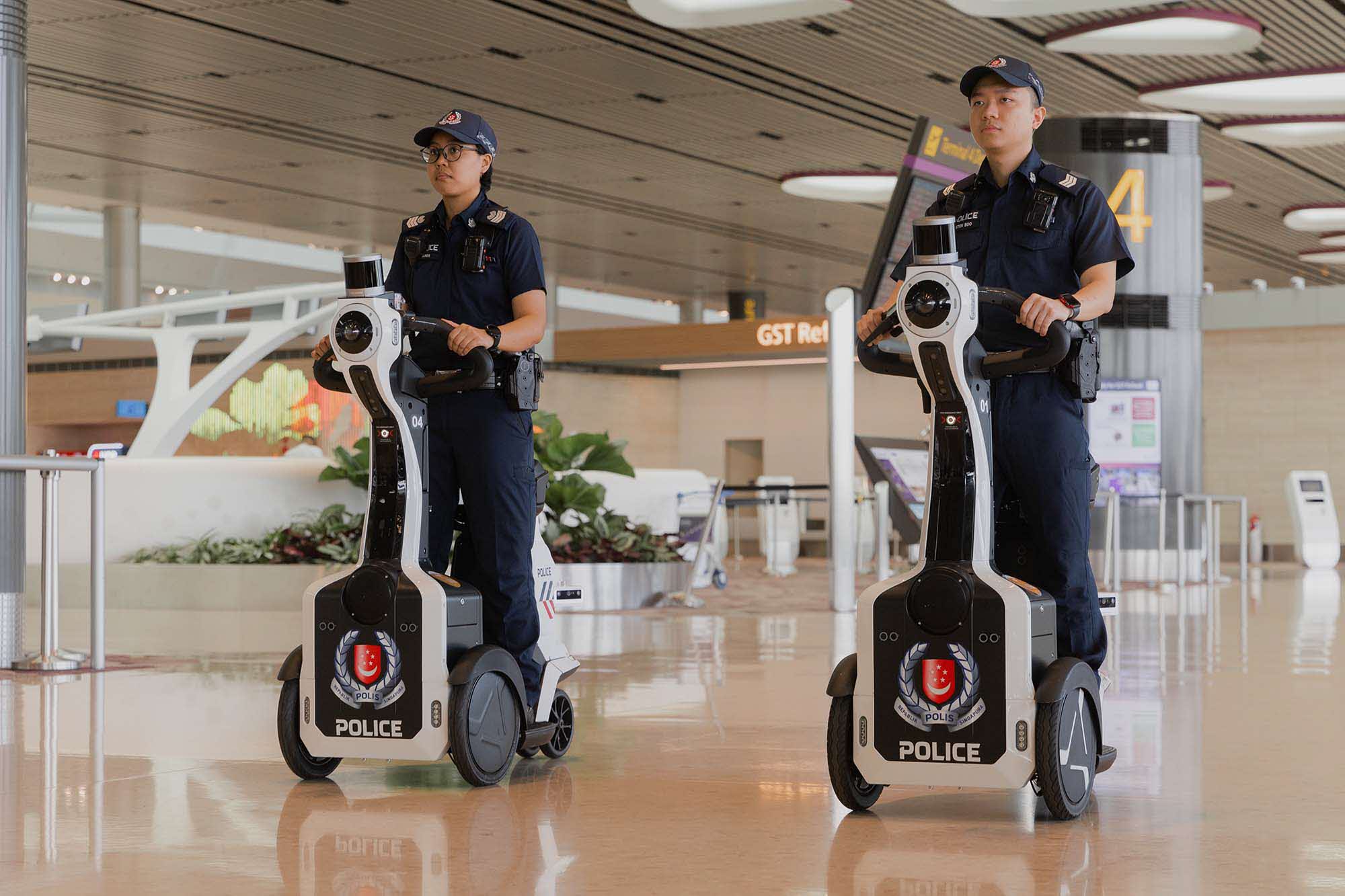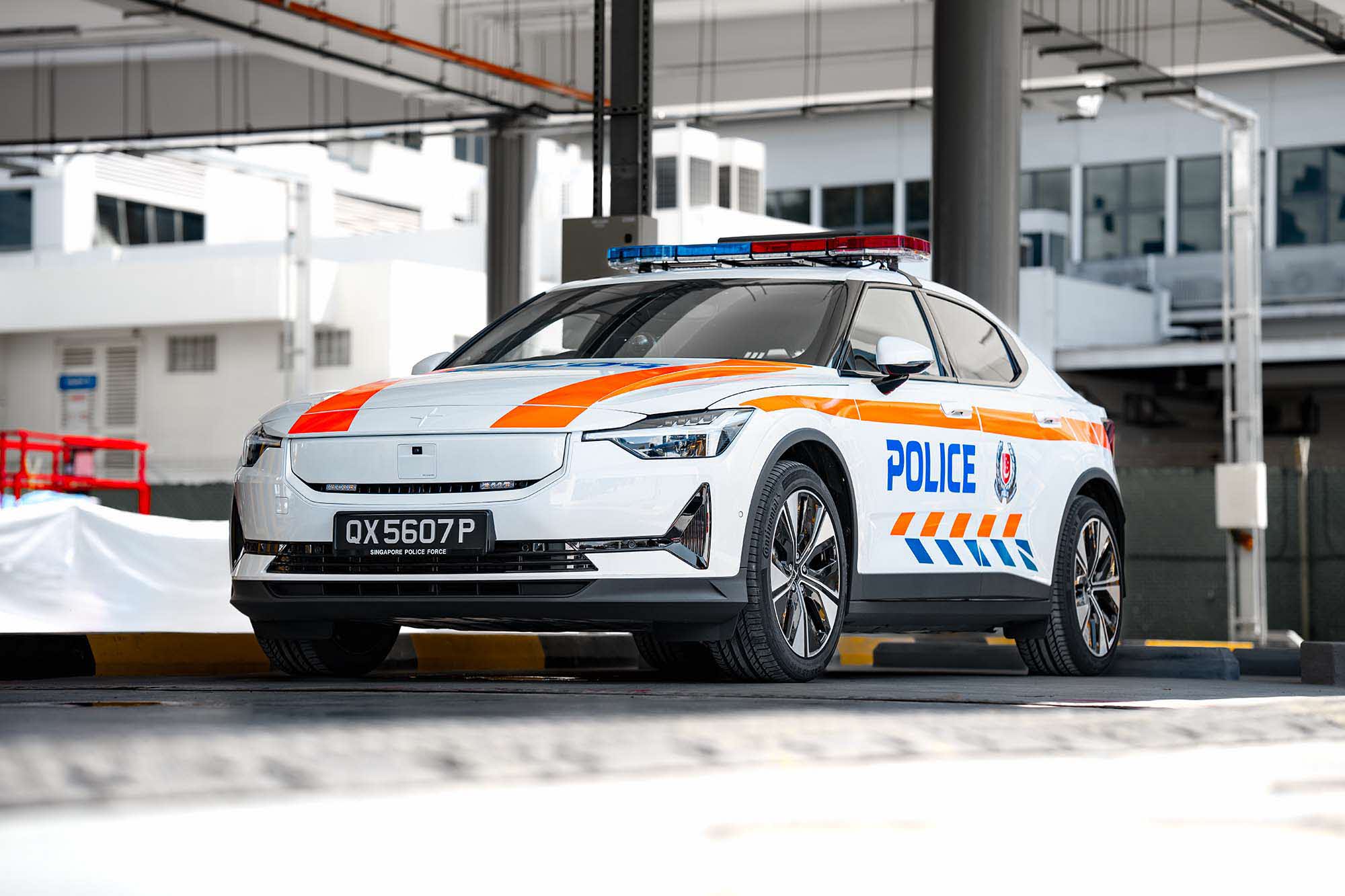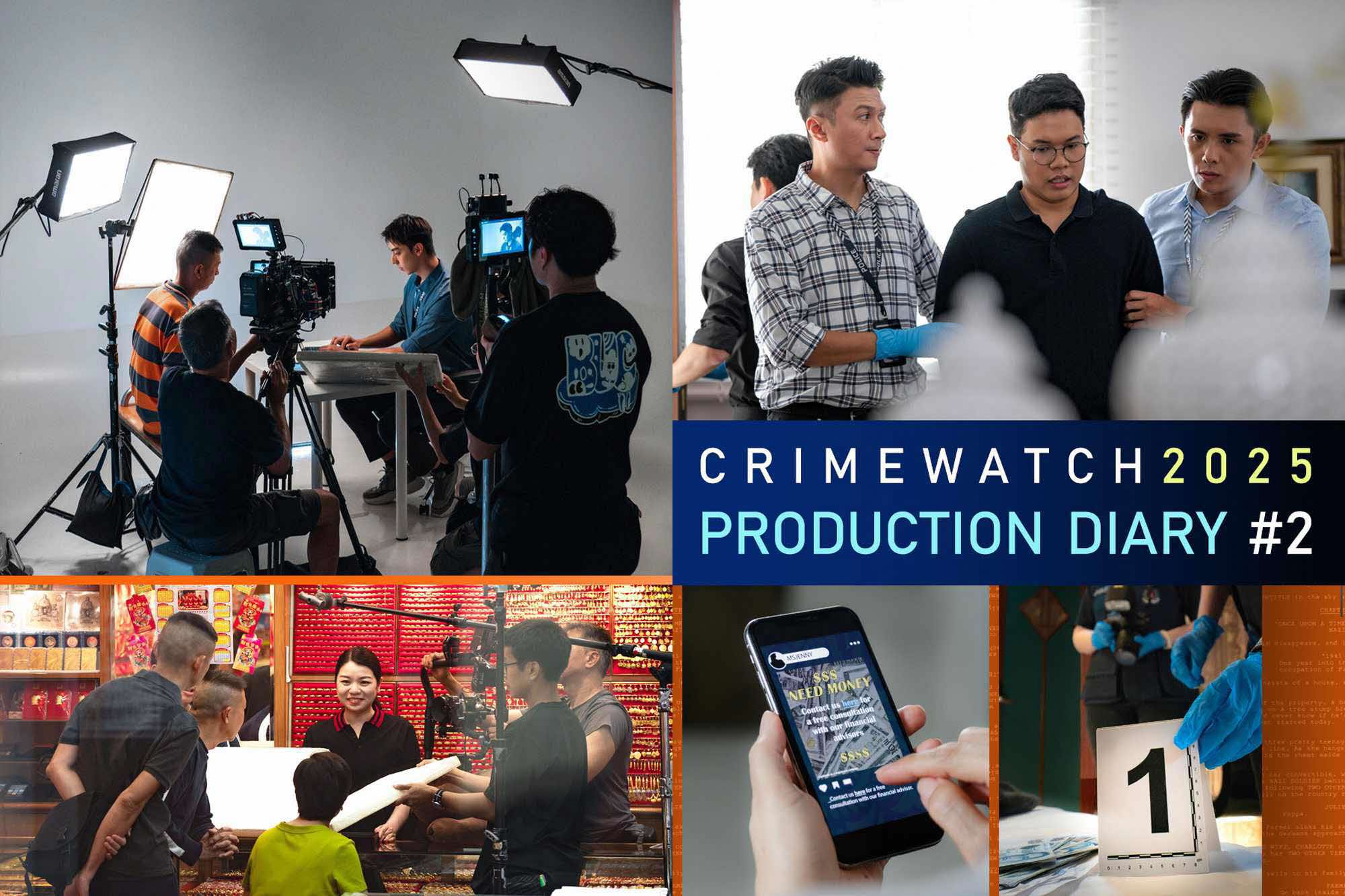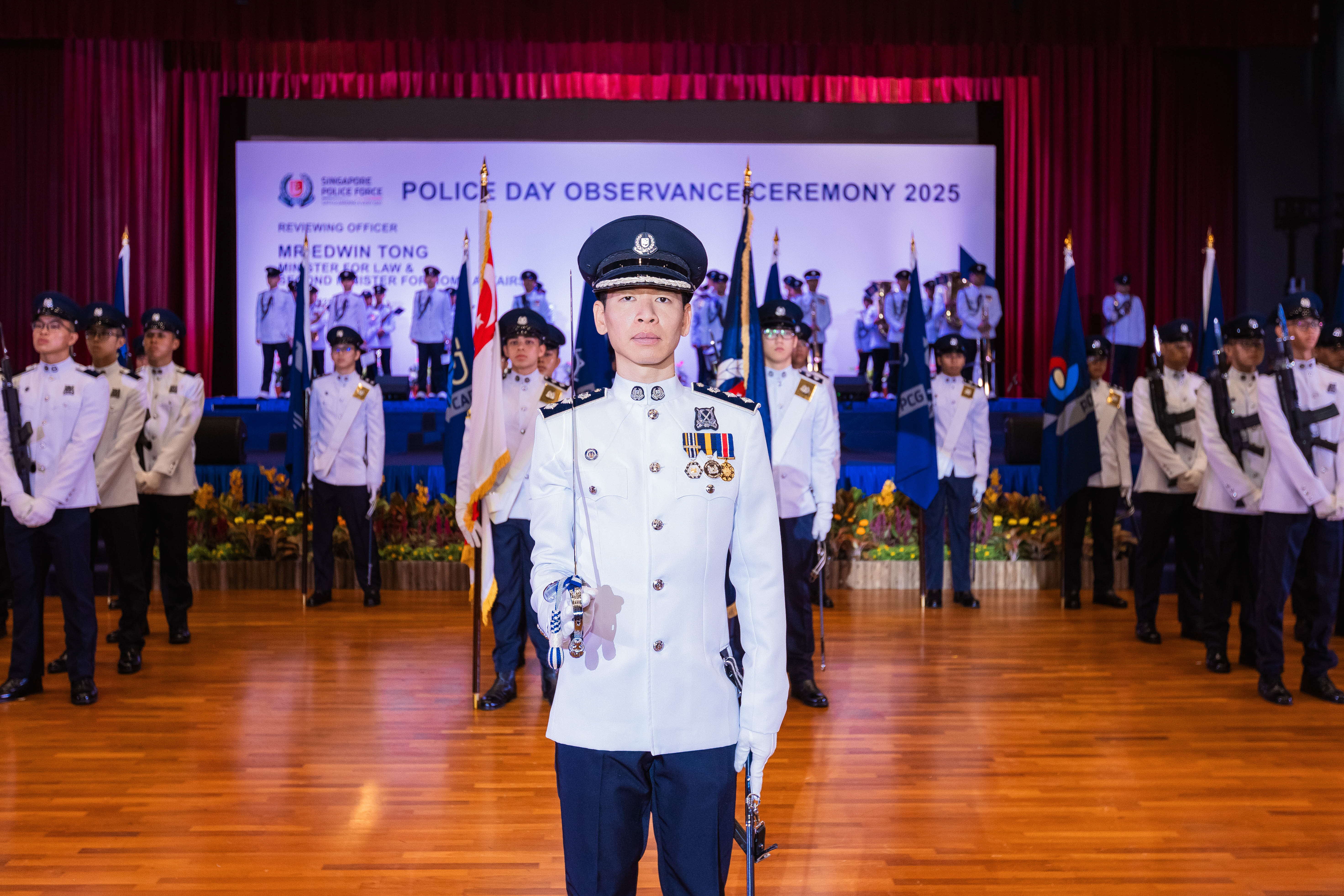Meet three awesome canines with special skills that help keep Singapore safe and secure.
By: Christabelle Lim
It was a scorching hot day and Dash was feeling the heat. She flopped to the ground, tongue out, panting to keep cool.
Her handler, Sergeant (Sgt) Choi Jia Wen from the Singapore Police Force’s (SPF) K-9 unit, knew exactly what she needed. After a cool drink and a pep talk, Dash was up and wagging her tail vigorously, raring to go.
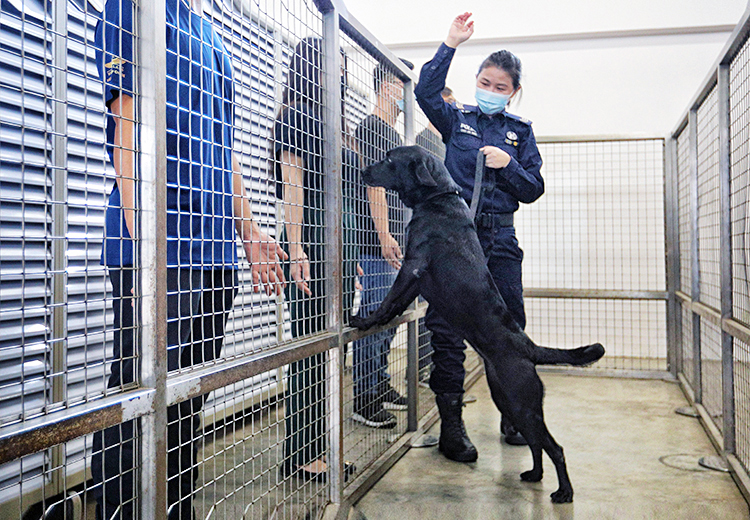
It was obvious how the bond between Sgt Choi and Dash is crucial for the unit’s operational success. Let’s meet working dogs Dash, Inca and Koby as we get “fur-miliar” with the unit that detects crime, with their noses.
History of the Police K-9 Unit
Following the successful use of police dogs in other countries, the Police Dog Unit (PDU) was first established in 1955. Back then, the dogs were involved in crimefighting mainly through tracking targets and conducting patrols. Since then, the unit has grown both in size and in capabilities.
In 2003, it was renamed as Police K-9 Unit and reorganised to be part of the newly established Special Operations Command (SOC). The unit was also re-homed in 2004 to its current base in Choa Chu Kang.
The Police K-9 Unit plays a significant role in keeping Singapore safe and secure as a tactical unit to support frontline operations. There are various working dogs trained for different purposes such as narcotics detection, security coverage, explosives detection, patrols, and tracking of wanted and missing persons.
The dog breeds are also varied, comprising German Shepherds, Belgian Malinois, Labrador Retrievers, Golden Retrievers, Springer Spaniels, Cocker Spaniels, Pointers and Border Collies.
Dash on Assignment – Complementing Police Operations
Dash, aged 5, is a Labrador Retriever. She started her journey as an SPF working dog when she was one year old, when she started training to be a Narcotic Detection Dog (NDD). Her handler, Sgt Choi, had been working with Dash ever since she started her training.
Over the years, the bond between Sgt Choi and Dash has developed and made the duo into an effective crime-busting team. In October 2020, Dash and Sgt Choi were activated when a man was found unresponsive in a car. Dash swiftly detected suspicious items below the driver’s seat and armrest.
Further checks were conducted and a total of 31 zip-lock bags of brownish powdery substance and one zip-lock bag of crystallised substance, all believed to be controlled drugs, were found.
Training to Bond
The importance of the training process for Police dogs cannot be emphasised enough as the process is crucial towards forging and strengthening the bond between the handler and dog. The K-9 Unit handlers are required to undergo at least 12 weeks of training to become proficient in the basics of handling a working dog. The most crucial aspect of this training is that the dog and the handler must go through this training and complete the course together.
At the Police K-9 Unit base, Dash and her fellow canines Inca and Koby undergo hours of training with their respective handlers, in training rooms that simulate different operating environments. The training rooms are modelled after places where the dogs are often deployed to, such as a warehouse, a baggage handling area, and the detection channels at the border checkpoints.
Sniff the Drugs, Get the Reward
Three-year-old Inca is a Labrador Retriever NDD and has worked with handler Sgt Aloysius Ho for the past year. In a K-9 training room, Inca demonstrated his ability as an NDD to sniff out drugs hidden in one of the luggage pieces on a moving conveyor belt. Inca jumped onto the conveyor belt and methodologically sniffed each luggage piece as instructed by Sgt Ho.
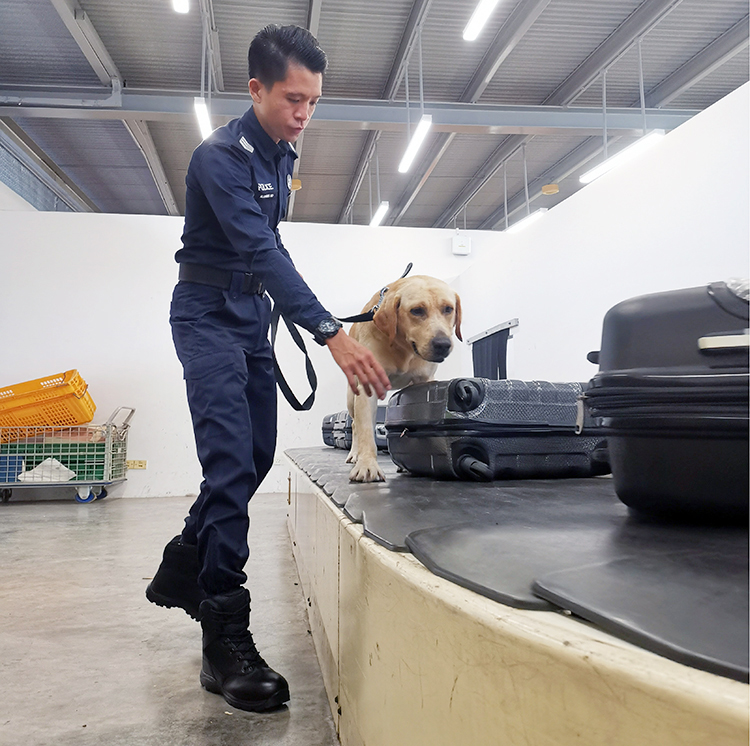
Inca’s body tensed up and “froze” over a piece of luggage, his tail wagging furiously, indicating to Sgt Ho that the luggage was “suspicious” and should be checked. With Inca’s mission accomplished, Sgt Ho redirected Inca’s attention by bouncing his reward – the string ball – over the luggage with a shout of encouragement and praise: “Good boy!”
Inca chewed excitedly on his reward before starting a game of fetch with his handler.
The K-9 dogs work and train closely with their handlers to ensure operational efficiency. The handlers use positive reinforcements during training, which involves rewarding the dogs with a string ball for desired behaviours. Through such training, the dogs are conditioned and more likely to repeat such behaviours.
Unleashing Koby, the New Recruit in the Explosive Detection Team
Koby sat in the cage, waiting excitedly for his handler, Station Inspector (SI) See Toh Wai Leng. Koby is a two-year-old English Springer Spaniel, eager to show off his newly trained capabilities as an Explosives Detection Dog (EDD).
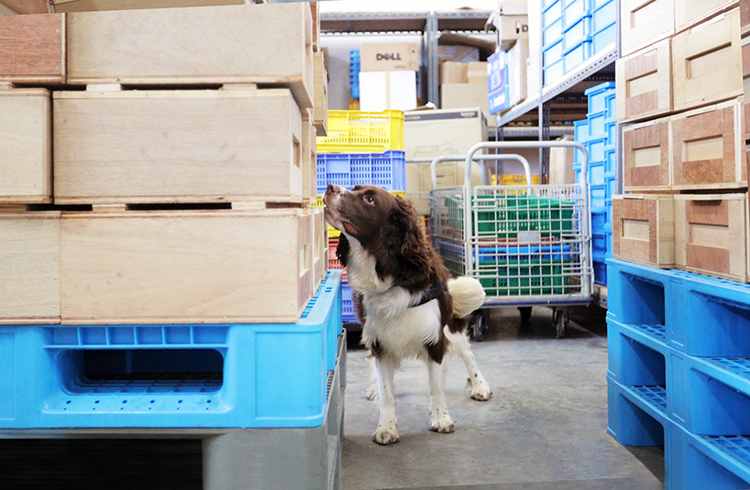
Straining at the leash at the entrance of the warehouse, Koby’s excitement and energy was palpable. Once off the leash, Koby zipped among the crates and pallets, excitingly searching for a scent.
As Koby explored the vast warehouse, SI See Toh kept a watchful eye on him, giving verbal commands to ensure that Koby was focused on the mission. She shared that the process of training a dog is like raising a child: “It takes a lot of time, patience and dedication.”
Besides training, SI See Toh’s key responsibilities also include making sure that her dog is operationally ready to respond to any activations and to operate swiftly and safely. Just like a watchful mother, she must ensure her dog is sufficiently rested before deployment and keeps an eye out for any hazards during deployment.
Duo on Deployment
Aside from training, the handlers also groom, walk, exercise and play with the dogs. All these activities are crucial in building and strengthening the bond and trust between both dogs and handlers.
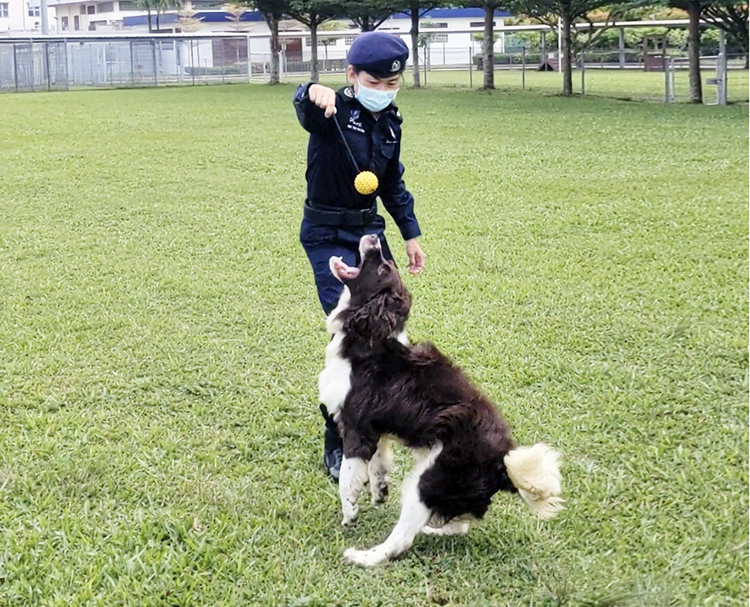
The handlers are also trained to provide healthcare assistance to the dogs such as identifying various common ailments and applying first aid on their dogs. There’s also an in-house veterinarian clinic when professional veterinary medical care is required.
Over the past three years, the Police K-9 Unit has been involved in almost 100 successful cases each year. The dogs and their handlers are deployed for 12-hour shifts, spending many hours together.
Yet, after their shifts, there’s always time for play and bonding. Sgt Choi spends 48 hours a week at work with Dash, as they prepare themselves to be deployed at any time. Outside of work, Dash is also her playmate and friend. They support each other to bring out the best in one another, as friends, partners and colleagues, to help keep Singapore safe and secure.


